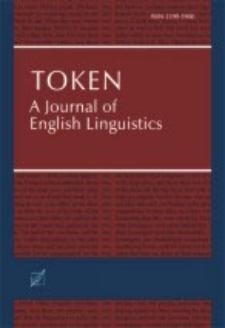Digital Library of the Jan Kochanowski University contains 13 466 digital objects
Object
Title: A Corpus-driven Conversation Analysis Approach to Mentor-Mentee Interactions in a Practicum Context
Creator:
Group publication title:
Abstract:
Effective collaboration of a mentor–mentee type is built on nonhierarchical, nondirective, frequent, meaningful, (in)formal and compassionate relationships (e.g., Arshavskaya 2014; Izadinia 2015; Kim – Schallert 2011; Long et al. 2013; Mena et al. 2017; Moser et al. 2019). Such contact opens a space for constructive conversations that build the intellectual, knowledge and social capital of teacher candidates, their future pupils and mentors (Langdon et al. 2014). Contrarily, contact based on a highly hierarchical expert–novice type leads to a supervisory rather than a supportive relationship (Jones et al. 2016). The supervisory type negatively influences the challenging apprenticeship of observation (Lortie 1975) and the shaping of teacher candidates’ teacher identity (Long et al. 2013; Palazzolo et al. 2019; Patrick 2013). This paper adopts a corpusdriven conversation analysis approach to nuances of effective and good mentor – mentee interactions during feedback sessions of student-teaching practica. The corpus consists of 109 utterances which were made by effective and experienced mentors and which are recorded in 11 transcript excerpts selected from three scientific articles. The utterances were used in this paper to develop a framework of effective and good mentor communication. This framework was built by assigning these 109 utterances to one of the three types of conversational frames outlined by Long et al. (2013), i.e., educative or supportive or evaluative, paired with one of three types of eutoric cues characterized as positive/good communication by Korwin-Piotrowska (2020), i.e., the human being/mentee or the topic or the conversation/dialogue. The findings show that there is a statistically significant difference between the frequency of utterances addressing the mentee and the topic in the educative frame and such frequency addressing the mentee and topic in the evaluative frame. In other words, in the educative frame utterances are topic-centered and in the evaluative frame they are mentee-centered. This framework can help in acquiring a better understanding of one’s linguistic choices when interacting with others.
Place of publishing:
Physical description:
ISSN:
Publisher:
Wydawnictwo Uniwersytetu Jana Kochanowskiego w Kielcach
Date issued:
Identifier:
oai:bibliotekacyfrowa.ujk.edu.pl:8007 doi:10.25951/4825
Language:
Is part of:
Token : A Journal of English Linguistics
Has part:
Type:
Access rights:
Format:
Object collections:
- JKU Digital Library > University Publishing
- JKU Digital Library > University Publishing > Serial publications
- JKU Digital Library > University Publishing > Serial publications > "Token : A Journal of English Linguistics"
Last modified:
Apr 4, 2025
In our library since:
Feb 13, 2023
Number of object content hits:
69
All available object's versions:
https://bibliotekacyfrowa.ujk.edu.pl/publication/4825
Show description in RDF format:
Show description in OAI-PMH format:
| Edition name | Date |
|---|---|
| Bąk-Średnicka, Anna, A Corpus-driven Conversation Analysis Approachto Mentor-Mentee Interactions in a Practicum Context | Apr 4, 2025 |

